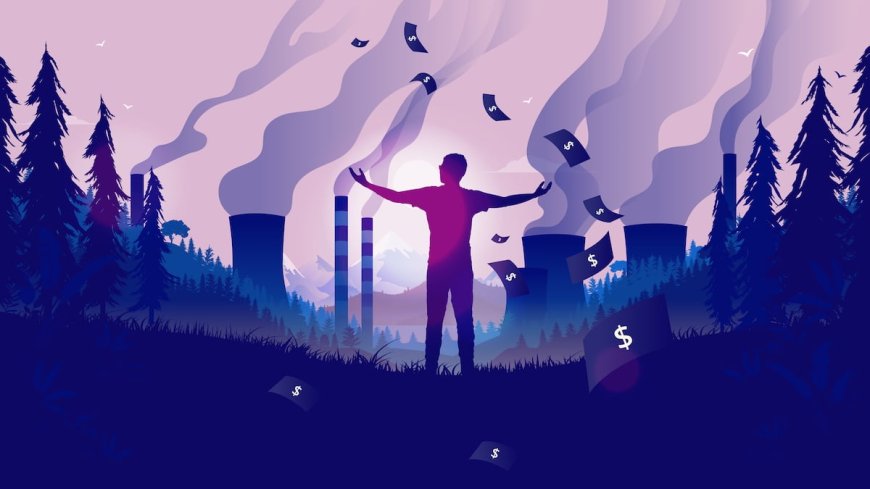World’s Richest 10% Responsible for Two-Thirds of Global Heating Since 1990: Study
The carbon footprint of the world’s wealthiest 10 percent has been responsible for two-thirds of global heating over the past 35 years, new research has found. The planet’s rapid temperature rise has driven heat waves and drought in the poorest areas of the world. “Our study shows that extreme climate impacts are not just the […] The post World’s Richest 10% Responsible for Two-Thirds of Global Heating Since 1990: Study appeared first on EcoWatch.

The carbon footprint of the world’s wealthiest 10 percent has been responsible for two-thirds of global heating over the past 35 years, new research has found.
The planet’s rapid temperature rise has driven heat waves and drought in the poorest areas of the world.
“Our study shows that extreme climate impacts are not just the result of abstract global emissions, instead we can directly link them to our lifestyle and investment choices, which in turn are linked to wealth,” explained lead author of the study Sarah Schöngart with the Institute for Atmospheric and Climate Science at ETH Zürich, in a press release from the International Institute for Applied Systems Analysis (IIASA). “We found that wealthy emitters play a major role in driving climate extremes, which provides strong support for climate policies that target the reduction of their emissions.”
The researchers looked at the contribution of groups within societies with the highest emissions and discovered that the richest one percent contributed 17 times the worldwide average to droughts in the Amazon and 26 times more to rises in monthly occurrences of one-in-100-year global heat extremes.
“The research sheds new light on the links between income-based emissions inequality and climate injustice, illustrating how the consumption and investments of wealthy individuals have had disproportionate impacts on extreme weather events,” IIASA said.
The impacts were found to be especially severe in the Amazon, southern Africa, Southeast Asia and other vulnerable tropical regions, all of which have contributed the least amount to the world’s emissions.
“We found that the wealthiest 10% contributed 6.5 times more to global warming than the average, with the top 1% and 0.1% contributing 20 and 76 times more, respectively. For heat, this imbalance is more pronounced at the grid-cell-level: the wealthiest 10% and 1% contributed over 7 and 25 times more than the global average to the increase in frequency of pre-industrial 1-in-100-year heat extremes during months with peak summer temperatures,” the authors wrote in their paper published in Nature Climate Change.
The research team used a modeling framework that combined climate simulations and economic data to trace emissions from various global income groups and assess the contributions of each to specific climate extremes.
They discovered that emissions from the richest 10 percent of people in China and the United States alone each resulted in an increase of two to three times the heat extremes in vulnerable regions.
“If everyone had emitted like the bottom 50% of the global population, the world would have seen minimal additional warming since 1990,” said study co-author Carl-Friedrich Schleussner, leader of IIASA’s Integrated Climate Impacts Research Group, in the press release. “Addressing this imbalance is crucial for fair and effective climate action.”
The authors emphasized the importance of emissions that are embedded in financial investments, not just personal consumption. They argue that targeting the portfolios and financial flows of high-income individuals could lead to substantial climate benefits.
“This is not an academic discussion — it’s about the real impacts of the climate crisis today,” Schleussner added. “Climate action that doesn’t address the outsize responsibilities of the wealthiest members of society, risks missing one of the most powerful levers we have to reduce future harm.”
The post World’s Richest 10% Responsible for Two-Thirds of Global Heating Since 1990: Study appeared first on EcoWatch.





















































